Classics in Empiricist Philosophy Collection (9 vols.)
Digital Logos Edition
Interested in modern philosophy? The Classics in Empiricist Philosophy Collection is also available in the Modern Philosophy Research Library (69 vols.) at a significant discount!
Overview
What is the nature of knowledge? John Locke, George Berkeley, and David Hume answered this question by arguing that humans can derive knowledge only from sense experience. Known as empiricism (from the Greek empeiria meaning “experience”), their way of understanding knowledge revolutionized Western philosophy.

- Nine volumes containing the seminal works of classic empiricism
- Biographical notes and editor’s introductions
- Complete indexes
- Title: Classics in Empiricist Philosophy Collection
- Volumes: 9
- Pages: 3,357
This title is included in the following collections
You can save when you purchase this product as part of a collection.
Modern Philosophy Research Lib...
$499.99$499.99Philosophy Research Library (1...
$799.99$799.99Verbum 7 Portfolio Legacy Libr...
$4,749.99$4,749.99
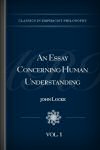
Volume one contains books I and II of Locke’s essay. In book I, Locke directly attacks the theory of innate knowledge held by Descartes and other continental rationalists. He argued that, at conception, the human mind was a blank slate (tabula rasa). All the ideas and principles in the mind were created by each person’s experience of the world. Descartes and the other continental rationalists held that knowledge could be reached through pure reason, apart from experience, because the human mind had innate principles—ideas and concepts that were there from birth.
In book II, Locke puts forward his theory of ideas. He argues that all ideas come from two different types of experience: sensation and reflection. He distinguishes between simple ideas (red, round) and complex ideas (apple). He also distinguishes between primary and secondary qualities. A primary quality is something which is actually attributable to a thing (solidity) and a secondary quality is a quality which the particular thing produces in the human observer (such as smell). Locke uses his understanding of simple and complex ideas to form an argument for the existence of God.
John Locke (1632–1704) was born in Wrington, Somerset, to a Puritan family. He attended Christ Church, Oxford, where he earned a BA, an MA, and a Bachelor of Medicine. After studying medicine, he met the Earl of Shaftesbury and became involved in Shaftesbury’s Whig movement. In 1683, he fled to the Netherlands to escape prosecution over his supposed involvement in the Rye House Plot. Most of his published works were written while he was in exile in the Netherlands. He returned to England and continued to work with the Whig party until his death in 1704.
Many political philosophers consider Locke the father of classical liberalism. One of the first British empiricists, his main works focus on political philosophy and epistemology. His work had a major influence on Voltaire and Rousseau, as well as on many of the founding fathers of the United States (including Hamilton, Madison, and Jefferson). His concept of natural law and the inalienable rights of life, liberty, and property are reflected prominently in the Declaration of Independence.
Locke is also credited as one of the founders of British empiricism. He taught, contrary to Continental rationalism, that humans cannot have a priori knowledge. In other words, the only sure knowledge that humans can have is based on experience. One must experience—observe, interact with—in order to know. He believed that the human mind was blank (tabula rasa) at the beginning of life. One’s experiences “wrote” on this blank paper, creating knowledge. Locke’s theory of knowing (epistemology) is considered by some philosophers to contain the seed of the Western concept of self.
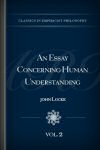
Volume two contains books III and IV of An Essay concerning Human Understanding. In book III, Locke presents his theory of language. He connects words with the ideas they signify. He then critiques the abuse of words by philosophers who make up new words not connected to a clear idea or connect old words to new ideas.
In book IV, Locke lays out his general theory of knowledge. He defines knowledge as the sum of one’s ideas and perceptions. He looks at the limits of knowledge and the divide between purported knowledge and reality—the divide, in other words, between a person’s claim of knowledge (based on their experience) and reality, which might not correspond to that knowledge.
John Locke (1632–1704) was born in Wrington, Somerset, to a Puritan family. He attended Christ Church, Oxford, where he earned a BA, an MA, and a Bachelor of Medicine. After studying medicine, he met the Earl of Shaftesbury and became involved in Shaftesbury’s Whig movement. In 1683, he fled to the Netherlands to escape prosecution over his supposed involvement in the Rye House Plot. Most of his published works were written while he was in exile in the Netherlands. He returned to England and continued to work with the Whig party until his death in 1704.
Many political philosophers consider Locke the father of classical liberalism. One of the first British empiricists, his main works focus on political philosophy and epistemology. His work had a major influence on Voltaire and Rousseau, as well as on many of the founding fathers of the United States (including Hamilton, Madison, and Jefferson). His concept of natural law and the inalienable rights of life, liberty, and property are reflected prominently in the Declaration of Independence.
Locke is also credited as one of the founders of British empiricism. He taught, contrary to Continental rationalism, that humans cannot have a priori knowledge. In other words, the only sure knowledge that humans can have is based on experience. One must experience—observe, interact with—in order to know. He believed that the human mind was blank (tabula rasa) at the beginning of life. One’s experiences “wrote” on this blank paper, creating knowledge. Locke’s theory of knowing (epistemology) is considered by some philosophers to contain the seed of the Western concept of self.
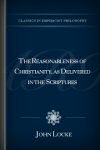
In The Reasonableness of Christianity, as Delivered in the Scriptures, Locke sets out to apply empiricism to the Bible. He argues that everything in Scripture agrees with human reason, that there is nothing unreasonable about Christ’s claims to divinity or the reports of miracles, and that the core beliefs of the Christian faith are clearly visible in Scripture. As such, Scripture provides a good basis for establishing agreement and tolerance between Christians.
John Locke (1632–1704) was born in Wrington, Somerset, to a Puritan family. He attended Christ Church, Oxford, where he earned a BA, an MA, and a Bachelor of Medicine. After studying medicine, he met the Earl of Shaftesbury and became involved in Shaftesbury’s Whig movement. In 1683, he fled to the Netherlands to escape prosecution over his supposed involvement in the Rye House Plot. Most of his published works were written while he was in exile in the Netherlands. He returned to England and continued to work with the Whig party until his death in 1704.
Many political philosophers consider Locke the father of classical liberalism. One of the first British empiricists, his main works focus on political philosophy and epistemology. His work had a major influence on Voltaire and Rousseau, as well as on many of the founding fathers of the United States (including Hamilton, Madison, and Jefferson). His concept of natural law and the inalienable rights of life, liberty, and property are reflected prominently in the Declaration of Independence.
Locke is also credited as one of the founders of British empiricism. He taught, contrary to Continental rationalism, that humans cannot have a priori knowledge. In other words, the only sure knowledge that humans can have is based on experience. One must experience—observe, interact with—in order to know. He believed that the human mind was blank (tabula rasa) at the beginning of life. One’s experiences “wrote” on this blank paper, creating knowledge. Locke’s theory of knowing (epistemology) is considered by some philosophers to contain the seed of the Western concept of self.
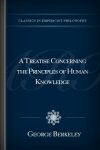
In A Treatise concerning the Principles of Human Knowledge, Berkeley repudiates Locke’s theory of human perception. Where Locke argued that ideas come from one’s experience of an external, material world, Berkeley argued that the world itself is composed only of ideas. Berkeley held that ideas can only resemble other ideas: an idea in the human mind can only resemble an idea in the external world, not a material object. Consequently, Berkeley argued, being necessitates perception by a perceiver.
Going further, Berkeley argued that it is impossible to prove the existence of material objects external to the self, since all knowledge comes through one’s senses and therefore gives only knowledge of those senses. He argued that Locke’s assertion that primary qualities exist in abstraction, and are therefore knowable only through secondary qualities, was mistaken. It is only possible to know the qualities that are immediately perceptible to the human mind. If they are not directly perceptible (as Locke’s primary qualities were), then there is no way to know them and, therefore, we cannot say that they exist.
Bishop George Berkeley (1685–1753) was born in Thomastown, County Killkenny, Ireland, and attended Trinity College in Dublin. He earned an MA in 1707 and a doctorate in divinity in 1721. He taught Greek, Hebrew, and divinity at Trinity College until 1724, when he was appointed Dean of Derry in the Church of Ireland. In 1728, he moved to Rhode Island with the hopes of starting a college in Bermuda. Funds for the new college did not arrive as expected, and Berkeley was forced to return to London. While in London, he worked at the Foundling Hospital and helped establish a home for abandoned children. He was appointed Bishop of Cloyne in 1734, living there until he retired in 1752.
Berkeley’s brand of empiricism is known as immaterialism (sometimes subjective idealism). Berkeley taught that matter, as an abstract entity, had no existence on its own. Rather, said Berkeley, objects only exist if they are perceived. An apple, for example, is made up of a number of different qualities (color, smell, taste, etc.). If there is no mind to perceive those qualities, taught Berkeley, the apple would not exist. His motto, “to be is to be perceived,” sums up this philosophy. Berkeley’s empiricism supports the Lockean idea that knowledge relies on observation. It departs from Locke in denying the existence of matter as an abstract entity.
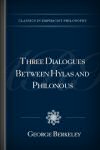
In Three Dialogues between Hylas and Philonous, Berkeley sets up a Socratic dialogue between his own idealist views, in the person of Philonous (“lover of mind”), and the more Lockean views of Hylas (“matter”). Philonous argues that, while it is common sense to assume that the objects you perceive are real, it is against common sense to assume that those objects exist independent of perception. Through Philonous, Berkeley puts forward his “master argument.” The argument is essentially that it is impossible truly to conceive of an object outside of the mind because in the very act of trying to conceive of that object it is in the mind.
Berkeley also puts forward his theory that God is the perceptive mind that is always present and, therefore, is the mind that gives sensible qualities to objects. God groups various perceptions together. For example, humans experience the perception “touching water” and “feeling wet” at the same time. These patterns of perception are the subject of scientific study and described as laws of nature. However, they are not qualities which are inherent to an abstract material object. They are only assigned to objects by the mind of God.
Bishop George Berkeley (1685–1753) was born in Thomastown, County Killkenny, Ireland, and attended Trinity College in Dublin. He earned an MA in 1707 and a doctorate in divinity in 1721. He taught Greek, Hebrew, and divinity at Trinity College until 1724, when he was appointed Dean of Derry in the Church of Ireland. In 1728, he moved to Rhode Island with the hopes of starting a college in Bermuda. Funds for the new college did not arrive as expected, and Berkeley was forced to return to London. While in London, he worked at the Foundling Hospital and helped establish a home for abandoned children. He was appointed Bishop of Cloyne in 1734, living there until he retired in 1752.
Berkeley’s brand of empiricism is known as immaterialism (sometimes subjective idealism). Berkeley taught that matter, as an abstract entity, had no existence on its own. Rather, said Berkeley, objects only exist if they are perceived. An apple, for example, is made up of a number of different qualities (color, smell, taste, etc.). If there is no mind to perceive those qualities, taught Berkeley, the apple would not exist. His motto, “to be is to be perceived,” sums up this philosophy. Berkeley’s empiricism supports the Lockean idea that knowledge relies on observation. It departs from Locke in denying the existence of matter as an abstract entity.
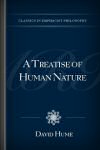
A Treatise of Human Nature comprises three sections: Of the Understanding, Of the Passions, and Of Morals. Of the Understanding looks at the nature of ideas, the ideas of space and time, concepts of knowledge and probability, skepticism, the soul, and personal identity. Of the Passions covers pride and humility, love and hatred, and the will and direct passions. Of Morals examines general concepts of virtue and vice, justice, and specific virtues.
In Of the Understanding, Hume argues that complex ideas are formed from simple ideas, which are formed from impressions based on direct experience. Consequently, ideas are not fundamentally different from impressions. Hume divides impressions into two categories: original and secondary. Original refers to internal impressions that reach us through our senses from physical sources. Secondary impressions are based on those original impressions. Hume argues that experience must be the basis for “matters of fact”; they cannot be approached by reasoning. If we have no direct experience of a concept (such as the size of the universe), that concept is not meaningful. For this reason, Hume argued that since we have no direct experience of God or the soul we cannot have any meaningful knowledge of them. Hume introduces three philosophical concepts: the microscope, the razor, and the fork. The microscope is the idea that in order to understand complex ideas, the philosopher has to break them down into simple ideas that can be analyzed. The razor is the idea that in order for a term to have meaning, it must be related to an idea that can be broken down into simple, concrete ideas. If the term fails that test, it is meaningless. The fork is the idea that truths can be divided into two kinds. The first kind of truth refers to things that arise out of relationships between ideas—such as math. The second kind of truth refers to matters of fact—things that exist in the world.
In Of the Passions, Hume returns to his distinction between original and secondary impressions, arguing that the passions are in the latter. Hume distinguishes between direct and indirect passions. Within those categories, Hume separates the cause and object of various passions. Hume argues that passions are related not to reason but to action. Human action is motivated not by reason but by passions. As such, morality cannot be based on reason.
In Of Morals, Hume builds on the previous two books, arguing that the two categories of morals, vice and virtue, are based on impressions rather than ideas: vice on the impression of pain, and virtue on the impression of pleasure. He argues that moral impressions come only from human actions and are valid only insofar as they apply socially. Consequently, sympathy, argues Hume, is the basis for moral obligation. Morality, says Hume, is not a direct matter of fact, based on direct experience of the physical world. Rather, it is based in the passions, arising from secondary impressions. Though reason can help understand morality it cannot be the basis for it.
David Hume (1711–1776) was born in Berwickshire, near Edinburgh, in Scotland. Hume was a philosopher, historian, economist, and essayist. He attended the University of Edinburgh from the age of 11 but left at 15 to pursue private study. His skepticism concerning religion kept him from getting the Chair of Ethics and Pnuematical Philosophy at the University of Edinburgh. When he failed to get the position, he accompanied his cousin as a secretary on a military mission against the French in Canada. After his trip to Canada, Hume travelled with his cousin to Vienna and Turin. He wrote at least one important philosophical treatise during this trip. When he returned to Scotland he accepted a position as a librarian and completed the six-volume History of England, which became a best seller. Hume lived in Paris as secretary to the British ambassador to France for three years. A fleeing Jean-Jacques Rousseau accompanied Hume on his return trip to England. Hume lived in London for a year, serving as under-secretary of state. Returning to Edinburgh, he built a house where he remained for the rest of his life.
Hume’s empiricist philosophy centered on his assertion that the science of man is the basis for all other sciences. In other words, one must understand how the human mind works in order to properly understand other sciences. Hume believed that there was no constant, permanent self. Rather, the self is always the sum of one’s sensations and reflections. Knowledge, likewise, is derived from sensations and reflections on those sensations. Consequently, propositions about objects are semantically equivalent to propositions about one’s experiences. While we can have belief in something that is not directly observable, we cannot have knowledge about that thing. Hume taught that “cause” and “effect” were qualities of human perception, not necessarily of the object itself. For example, we see ball A strike ball B; following that, ball B moves. Hume argued that while we perceive ball A to have caused the effect of ball B moving, those qualities might not exist in the balls themselves. The habit of seeing a ball strike another ball, followed by the movement of the second ball, leads us to perceive that ball A caused ball B to move. Hume wasn’t saying that ball A didn’t cause ball B to move; just that we cannot empirically observe the mechanism for the movement, and thus we cannot have knowledge of it.
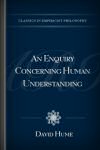
In An Enquiry concerning Human Understanding, Hume presents the main arguments in A Treatise of Human Nature in a shorter, more polemical form. He makes the same distinction between ideas and impressions. He argues that ideas are made up of impressions through resemblance, contiguity, and cause and effect. Hume builds the same case that meaningful terms must be built on ideas that are built on impressions. In the light of the epistemology he puts forward, Hume examines questions of free will, the reason of animals, and miracles.
I freely admit that the remembrance of David Hume was the very thing that many years ago first interrupted my dogmatic slumber and gave a completely different direction to my researches in the field of speculative philosophy.
—Immanuel Kant
David Hume (1711–1776) was born in Berwickshire, near Edinburgh, in Scotland. Hume was a philosopher, historian, economist, and essayist. He attended the University of Edinburgh from the age of 11 but left at 15 to pursue private study. His skepticism concerning religion kept him from getting the Chair of Ethics and Pnuematical Philosophy at the University of Edinburgh. When he failed to get the position, he accompanied his cousin as a secretary on a military mission against the French in Canada. After his trip to Canada, Hume travelled with his cousin to Vienna and Turin. He wrote at least one important philosophical treatise during this trip. When he returned to Scotland he accepted a position as a librarian and completed the six-volume History of England, which became a best seller. Hume lived in Paris as secretary to the British ambassador to France for three years. A fleeing Jean-Jacques Rousseau accompanied Hume on his return trip to England. Hume lived in London for a year, serving as under-secretary of state. Returning to Edinburgh, he built a house where he remained for the rest of his life.
Hume’s empiricist philosophy centered on his assertion that the science of man is the basis for all other sciences. In other words, one must understand how the human mind works in order to properly understand other sciences. Hume believed that there was no constant, permanent self. Rather, the self is always the sum of one’s sensations and reflections. Knowledge, likewise, is derived from sensations and reflections on those sensations. Consequently, propositions about objects are semantically equivalent to propositions about one’s experiences. While we can have belief in something that is not directly observable, we cannot have knowledge about that thing. Hume taught that “cause” and “effect” were qualities of human perception, not necessarily of the object itself. For example, we see ball A strike ball B; following that, ball B moves. Hume argued that while we perceive ball A to have caused the effect of ball B moving, those qualities might not exist in the balls themselves. The habit of seeing a ball strike another ball, followed by the movement of the second ball, leads us to perceive that ball A caused ball B to move. Hume wasn’t saying that ball A didn’t cause ball B to move; just that we cannot empirically observe the mechanism for the movement, and thus we cannot have knowledge of it.
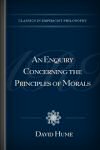
In An Enquiry concerning the Principles of Morals, David Hume builds on the concept of morals he put forward in A Treatise of Human Nature. He examines the contributions of moral sense and reason to the moral judgment of humans. He divides moral sense into categories of vice and virtue. He then divides virtue into categories of artificial and natural virtues. Artificial virtues come from and are enforced by society. Natural virtues are universal, as they come out of nature. Hume further divides natural virtues into voluntary and involuntary virtues. He reaffirms his earlier assertion that passions (moral sense), not reason, cause human action. He goes a bit further here in adding utility into the equation. He argues that passions combine with utility (or usefulness) to motivate moral action. Hume argues that benevolence plays an important role in virtue because benevolent acts offer the most utility for the greatest number of people.
David Hume (1711–1776) was born in Berwickshire, near Edinburgh, in Scotland. Hume was a philosopher, historian, economist, and essayist. He attended the University of Edinburgh from the age of 11 but left at 15 to pursue private study. His skepticism concerning religion kept him from getting the Chair of Ethics and Pnuematical Philosophy at the University of Edinburgh. When he failed to get the position, he accompanied his cousin as a secretary on a military mission against the French in Canada. After his trip to Canada, Hume travelled with his cousin to Vienna and Turin. He wrote at least one important philosophical treatise during this trip. When he returned to Scotland he accepted a position as a librarian and completed the six-volume History of England, which became a best seller. Hume lived in Paris as secretary to the British ambassador to France for three years. A fleeing Jean-Jacques Rousseau accompanied Hume on his return trip to England. Hume lived in London for a year, serving as under-secretary of state. Returning to Edinburgh, he built a house where he remained for the rest of his life.
Hume’s empiricist philosophy centered on his assertion that the science of man is the basis for all other sciences. In other words, one must understand how the human mind works in order to properly understand other sciences. Hume believed that there was no constant, permanent self. Rather, the self is always the sum of one’s sensations and reflections. Knowledge, likewise, is derived from sensations and reflections on those sensations. Consequently, propositions about objects are semantically equivalent to propositions about one’s experiences. While we can have belief in something that is not directly observable, we cannot have knowledge about that thing. Hume taught that “cause” and “effect” were qualities of human perception, not necessarily of the object itself. For example, we see ball A strike ball B; following that, ball B moves. Hume argued that while we perceive ball A to have caused the effect of ball B moving, those qualities might not exist in the balls themselves. The habit of seeing a ball strike another ball, followed by the movement of the second ball, leads us to perceive that ball A caused ball B to move. Hume wasn’t saying that ball A didn’t cause ball B to move; just that we cannot empirically observe the mechanism for the movement, and thus we cannot have knowledge of it.
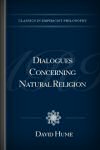
In Dialogues concerning Natural Religion, Hume creates a dialogue between Demea, Philo, and Cleanthes to discuss the existence and nature of God. As all three characters acknowledge the nature of God, their discussion focuses on the ability of human reason to know about God using the evidence available in nature. Demea is the Orthodox Christian, arguing that it is impossible to know God’s nature at all, especially through nature. Philo, the skeptic, largely agrees with Demea. Cleanthes, the Humean character, argues the empirical theist position. He uses various arguments, including an argument from design, to claim that it is possible to know about God’s nature by applying reason to the evidence of the natural world.
David Hume (1711–1776) was born in Berwickshire, near Edinburgh, in Scotland. Hume was a philosopher, historian, economist, and essayist. He attended the University of Edinburgh from the age of 11 but left at 15 to pursue private study. His skepticism concerning religion kept him from getting the Chair of Ethics and Pnuematical Philosophy at the University of Edinburgh. When he failed to get the position, he accompanied his cousin as a secretary on a military mission against the French in Canada. After his trip to Canada, Hume travelled with his cousin to Vienna and Turin. He wrote at least one important philosophical treatise during this trip. When he returned to Scotland he accepted a position as a librarian and completed the six-volume History of England, which became a best seller. Hume lived in Paris as secretary to the British ambassador to France for three years. A fleeing Jean-Jacques Rousseau accompanied Hume on his return trip to England. Hume lived in London for a year, serving as under-secretary of state. Returning to Edinburgh, he built a house where he remained for the rest of his life.
Hume’s empiricist philosophy centered on his assertion that the science of man is the basis for all other sciences. In other words, one must understand how the human mind works in order to properly understand other sciences. Hume believed that there was no constant, permanent self. Rather, the self is always the sum of one’s sensations and reflections. Knowledge, likewise, is derived from sensations and reflections on those sensations. Consequently, propositions about objects are semantically equivalent to propositions about one’s experiences. While we can have belief in something that is not directly observable, we cannot have knowledge about that thing. Hume taught that “cause” and “effect” were qualities of human perception, not necessarily of the object itself. For example, we see ball A strike ball B; following that, ball B moves. Hume argued that while we perceive ball A to have caused the effect of ball B moving, those qualities might not exist in the balls themselves. The habit of seeing a ball strike another ball, followed by the movement of the second ball, leads us to perceive that ball A caused ball B to move. Hume wasn’t saying that ball A didn’t cause ball B to move; just that we cannot empirically observe the mechanism for the movement, and thus we cannot have knowledge of it.
Reviews
8 ratings
AeliusCicero
6/19/2014
Seong Jin Kim
3/17/2014

Randy Lane
12/7/2013
Michael Maria Waldstein
12/7/2013

David Leslie Bond
11/20/2013

Dave Crosby
10/25/2013

RICHARD A. RAY
10/23/2013

Prayson Daniel
10/21/2013
Hume’s Dialogue Concerning Natural Religion is a master piece leveled to challenge the classical arguments for existence of God. Contrary to what many say, Hume's criticism is not leveled against God's existence, but whether His nature can be known. Both Demea (D 142) and Philo (D 198), Hume’s characters, affirmed God’s existence but diverged on His nature. The problem of evil, for example, was Philo’s case against a benevolent nature of God, not His existence. John Locke's Essay Concerning Human Understanding (Book II Chap 21) set a brilliant case for the compatibility of free will and determinism. His argument shows that Principle of Alternative Possibility, assumed in libertarian freewill, is not the reason we are morally accountable. This position favors Reformed theology. How God determines all but yet we are free. This is a brilliant philosophical collection. Thank you Logos for going beyond Theology to the area which is very close related.